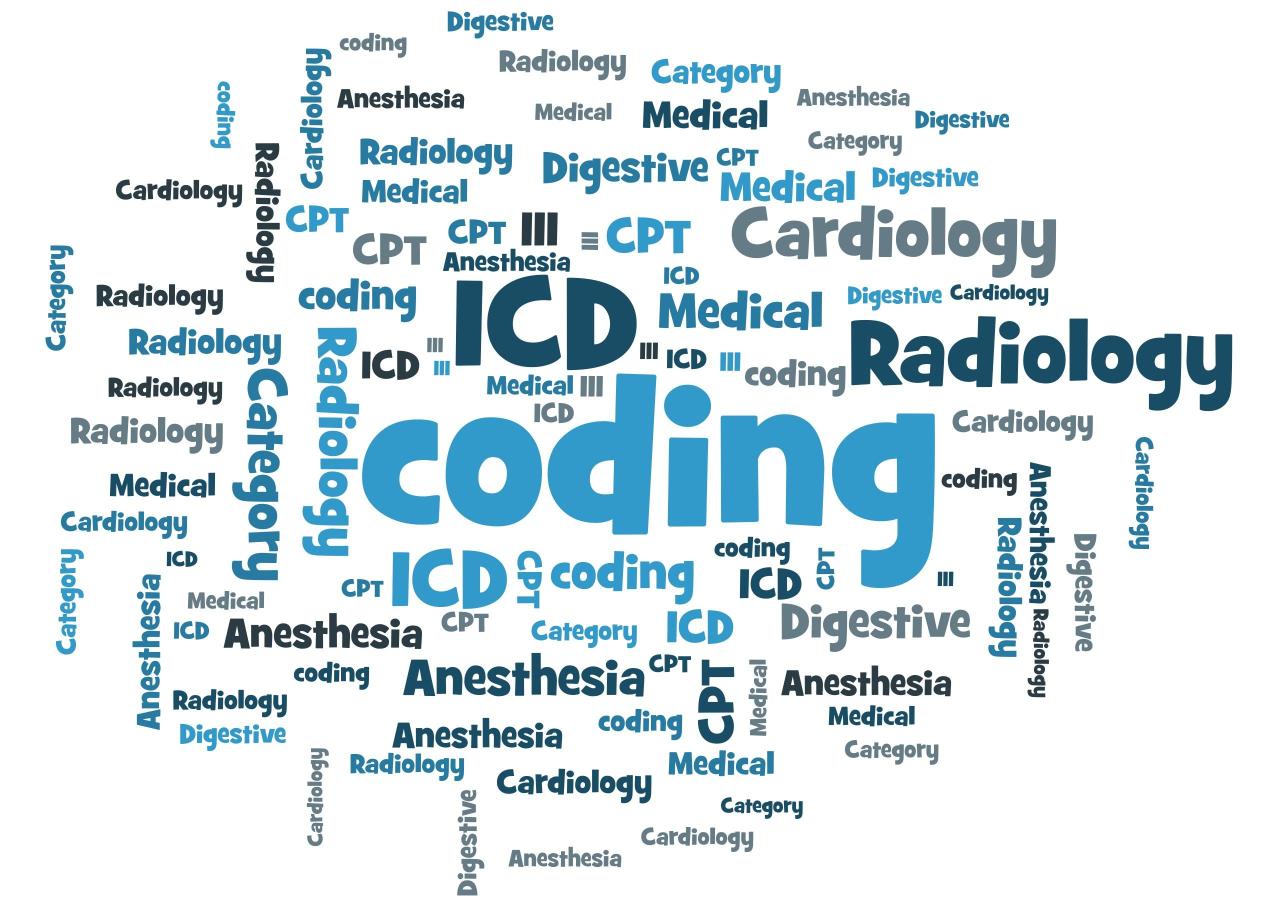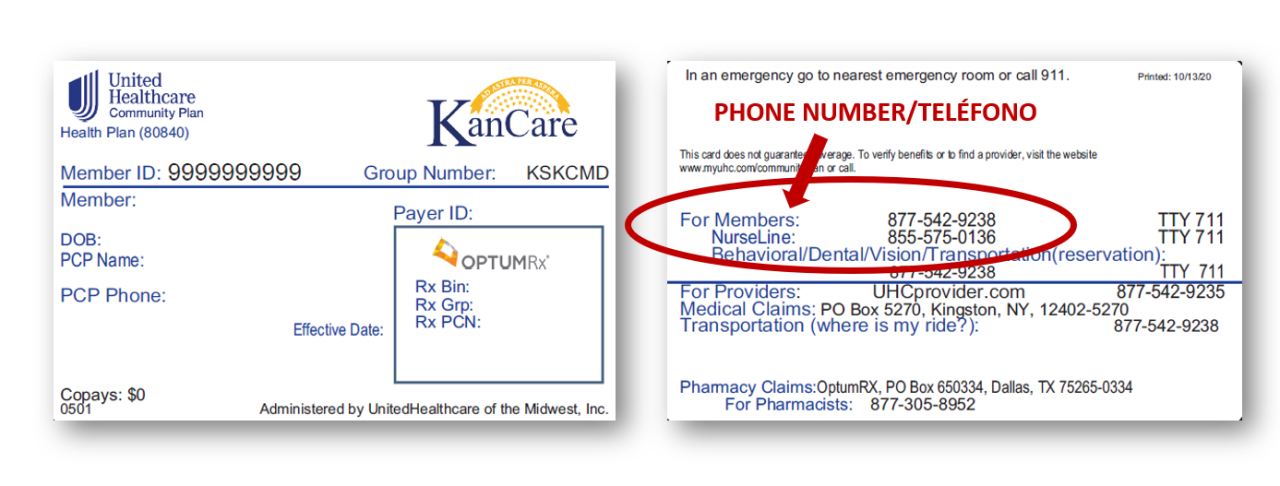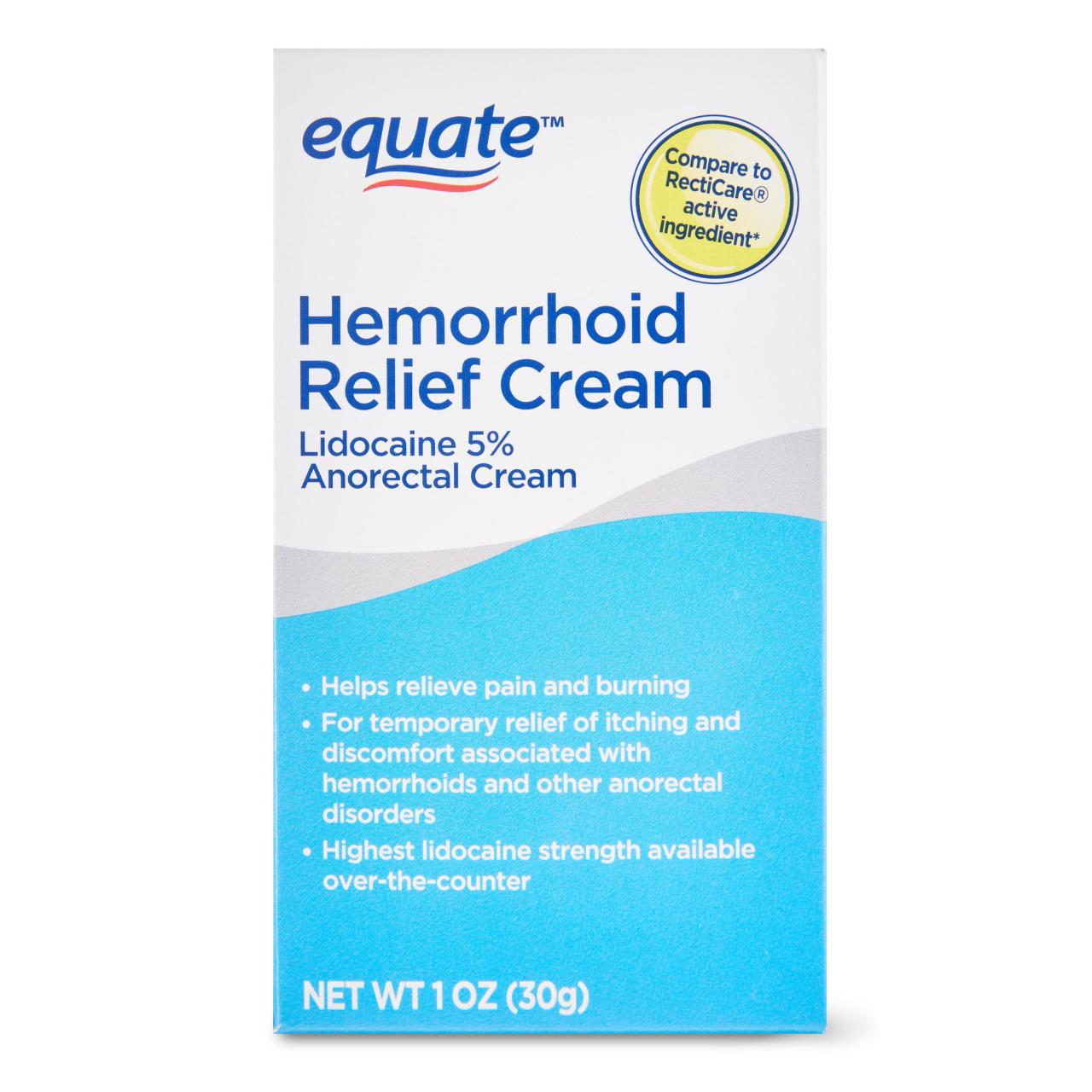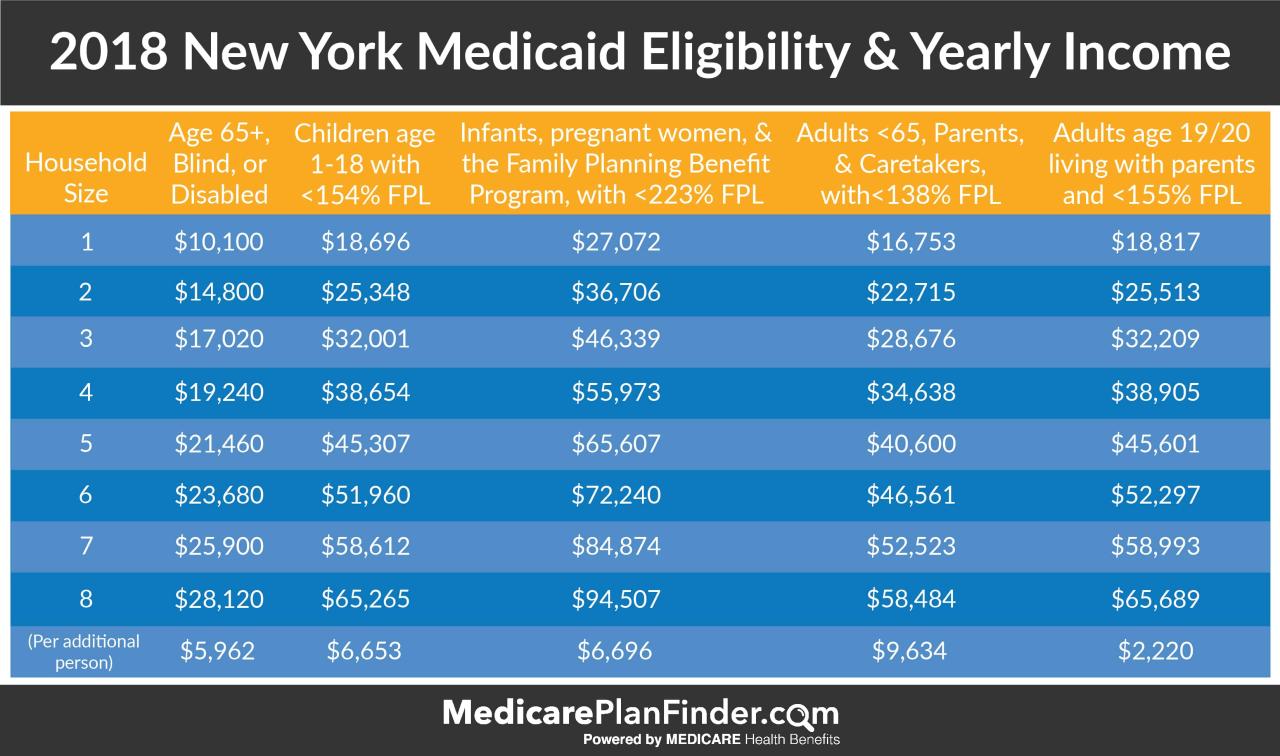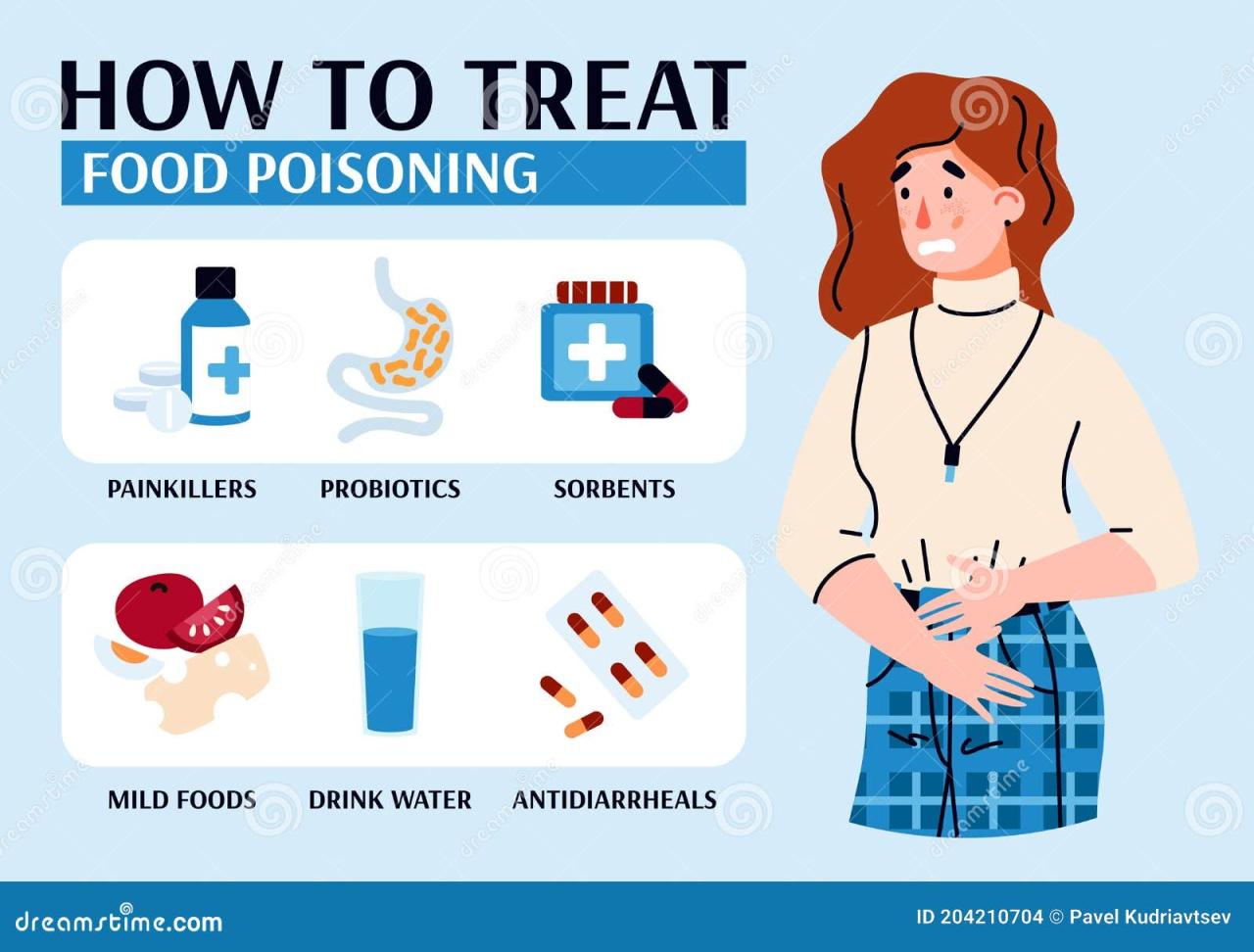Medical assistant certification sets the stage for a fulfilling career in healthcare. It’s a stepping stone to a variety of roles, allowing you to work alongside doctors, nurses, and other healthcare professionals. This certification demonstrates your knowledge and skills, opening doors to exciting opportunities in clinics, hospitals, and other medical settings.
Becoming a certified medical assistant is a rewarding journey. You’ll gain valuable experience in patient care, administrative tasks, and medical procedures. The certification process is structured to equip you with the essential skills and knowledge needed to thrive in this dynamic field.
Introduction to Medical Assistant Certification
A medical assistant certification is a professional credential that demonstrates a medical assistant’s competency and knowledge in providing administrative and clinical support in healthcare settings. It is a valuable asset for aspiring medical assistants, enhancing their career prospects and opening doors to a wide range of employment opportunities.
Significance of Medical Assistant Certification
Medical assistant certification is highly regarded in the healthcare field, signifying a commitment to professionalism and adherence to industry standards. Certified medical assistants are recognized for their skills and knowledge, leading to greater job security and earning potential. Employers often prefer certified medical assistants, as it assures them of a qualified and competent individual.
Benefits of Becoming a Certified Medical Assistant
- Enhanced job prospects and career advancement opportunities
- Increased earning potential and competitive salary
- Greater credibility and professional recognition
- Improved patient care and healthcare outcomes
- Access to professional development and continuing education resources
Requirements for Medical Assistant Certification
To become a certified medical assistant, individuals must meet specific educational and training requirements. These requirements typically include a combination of formal education, practical training, and clinical experience.
Educational Requirements
Most medical assistant certification programs require a high school diploma or equivalent. Some programs may accept individuals with a GED. However, a strong foundation in science, math, and communication skills is essential.
Training Programs and Courses
Medical assistant certification programs are available through various institutions, including community colleges, vocational schools, and online programs. These programs typically offer a comprehensive curriculum that covers both administrative and clinical aspects of medical assisting. Some of the common courses included in these programs are:
- Medical terminology
- Anatomy and physiology
- Medical office procedures
- Clinical skills (e.g., vital signs, injections, phlebotomy)
- Electronic health records (EHR)
- Patient communication and customer service
Practical Experience and Clinical Rotations
In addition to classroom instruction, medical assistant certification programs typically require practical experience and clinical rotations. These rotations provide students with hands-on training in real-world healthcare settings. Students work under the supervision of experienced medical professionals, gaining valuable experience in various clinical and administrative tasks.
Medical Assistant Certification Exams
To obtain medical assistant certification, individuals must pass a national certification exam. Several reputable organizations administer these exams, each with its own specific requirements and content.
Major Medical Assistant Certification Exams
- Certified Medical Assistant (CMA) Exam:Administered by the American Association of Medical Assistants (AAMA)
- Registered Medical Assistant (RMA) Exam:Administered by the American Medical Technologists (AMT)
- Certified Medical Administrative Assistant (CMAA) Exam:Administered by the National Healthcareer Association (NHA)
Comparison of Certification Exams
While all medical assistant certification exams cover essential knowledge and skills, they may differ in terms of content, format, and difficulty. For example, the CMA exam is known for its comprehensive coverage of both administrative and clinical topics, while the RMA exam focuses more heavily on clinical skills.
It’s essential to research each exam thoroughly to determine which one aligns best with your career goals and learning style.
It can be confusing to keep track of all the different health insurance programs available, especially when it comes to Medicare and Medicaid. They both sound similar, but they’re actually quite different. If you’re trying to figure out which one is right for you, it’s helpful to understand the key differences between Medicaid vs Medicare.
Medicare is a federal program for people 65 and older, while Medicaid is a state-run program for low-income individuals and families.
Tips for Preparing for and Passing Certification Exams
- Start early:Allow ample time for preparation, as the exams are comprehensive and require thorough knowledge.
- Use study materials:Utilize study guides, practice exams, and other resources provided by the certifying organization.
- Review course materials:Revisit your coursework and textbooks, focusing on key concepts and skills.
- Practice with mock exams:Familiarize yourself with the exam format and time constraints by taking practice exams.
- Get enough rest:Ensure you are well-rested and prepared for the exam day.
Career Paths for Certified Medical Assistants
A medical assistant certification opens doors to a wide range of career options in various healthcare settings. Certified medical assistants play a vital role in supporting healthcare providers and ensuring smooth patient care.
Career Options
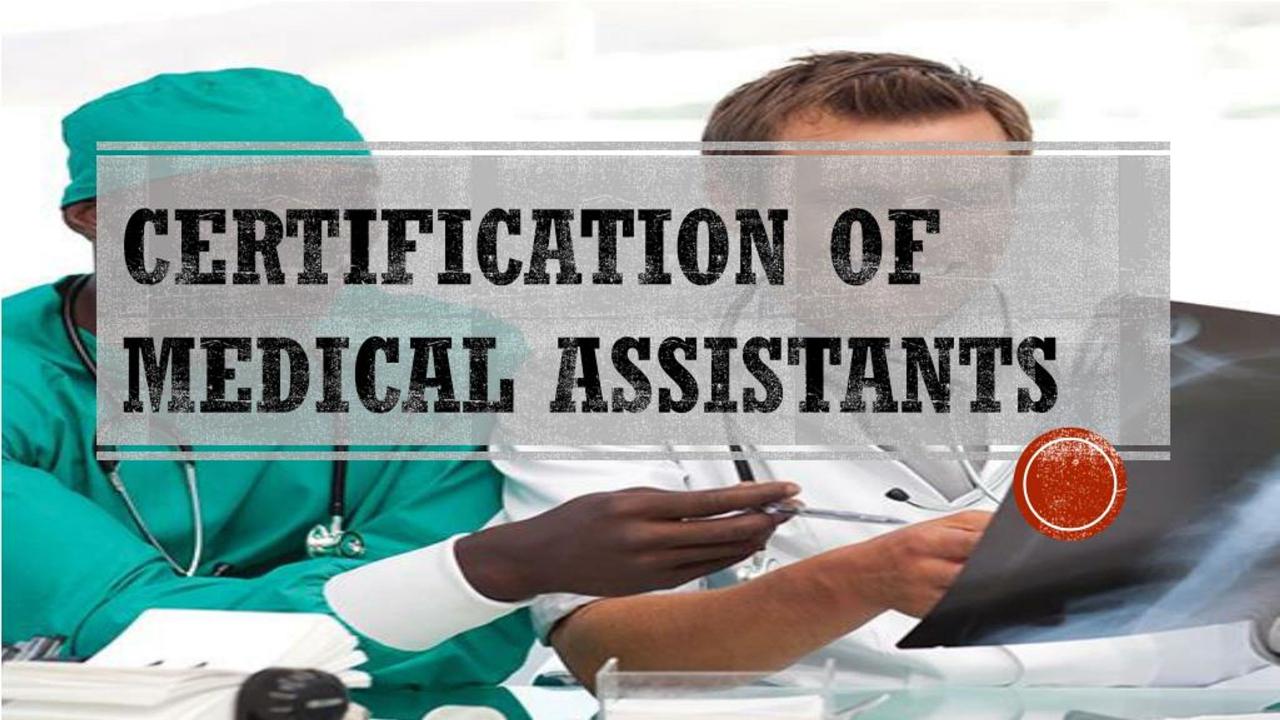
- Physician’s office:Assisting physicians with clinical and administrative tasks, managing patient flow, and providing patient education.
- Hospitals:Providing support to nurses and doctors, taking patient histories, and assisting with procedures.
- Clinics:Performing administrative tasks, scheduling appointments, and assisting with patient care.
- Urgent care centers:Assisting with patient triage, taking vital signs, and providing basic medical care.
- Home health agencies:Providing in-home care to patients, assisting with daily living activities, and administering medications.
Job Duties and Responsibilities, Medical assistant certification
The specific job duties of a certified medical assistant may vary depending on the work environment. However, common responsibilities include:
- Taking patient histories and vital signs
- Preparing patients for examinations and procedures
- Assisting with clinical procedures (e.g., injections, phlebotomy)
- Maintaining patient records and electronic health records (EHR)
- Scheduling appointments and managing patient flow
- Answering phones, handling correspondence, and providing patient education
- Billing and coding medical services
Maintaining Medical Assistant Certification
Medical assistant certification is not a one-time achievement. To maintain certification, individuals must meet ongoing requirements, including renewal and continuing education.
Renewal Process
Medical assistant certifications typically need to be renewed every one to three years, depending on the certifying organization. The renewal process usually involves paying a fee, completing continuing education requirements, and submitting an application.
Confused about the difference between Medicaid and Medicare? It’s easy to get them mixed up! Medicaid vs Medicare are both government-funded healthcare programs, but they have distinct eligibility requirements and cover different services. Medicare is for people over 65, while Medicaid is for low-income individuals and families.
Understanding the nuances of each program is crucial for accessing the healthcare you need.
Continuing Education Requirements
To stay current with the latest advancements in healthcare, certified medical assistants are required to complete continuing education units (CEUs) during their certification cycle. These CEUs can be earned through various means, such as attending conferences, workshops, online courses, or reading professional publications.
Consequences of Failing to Maintain Certification
Failing to maintain medical assistant certification can have serious consequences, including:
- Loss of professional recognition and credibility
- Inability to practice as a certified medical assistant
- Limited job opportunities and career advancement potential
Resources for Medical Assistant Certification
Several reputable organizations offer medical assistant certification and provide resources for aspiring and certified medical assistants.
Organizations Offering Medical Assistant Certification
- American Association of Medical Assistants (AAMA): https://www.aama-ntl.org/
- American Medical Technologists (AMT): https://www.amt.com/
- National Healthcareer Association (NHA): https://www.nhanow.com/
Websites with Information on Medical Assistant Certification
- Bureau of Labor Statistics (BLS): https://www.bls.gov/ooh/healthcare/medical-assistants.htm
- Healthcare Career Information (HCI): https://www.healthcareers.org/medical-assistant-careers/
- Medical Assisting Education Review (MAER): https://www.maer.org/
Support and Guidance for Aspiring Medical Assistants
Organizations like the AAMA, AMT, and NHA provide resources and support for aspiring medical assistants, including career guidance, educational programs, and mentorship opportunities.
Ending Remarks
With medical assistant certification, you’ll be prepared to make a real difference in the lives of patients. You’ll play a vital role in ensuring smooth operations in healthcare facilities, providing support and care to those in need. The journey to becoming a certified medical assistant is a rewarding one, offering both personal and professional growth.

